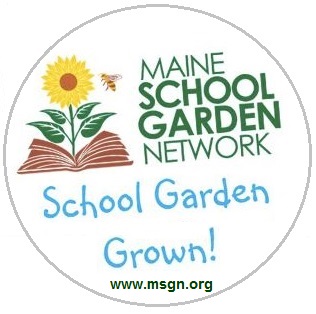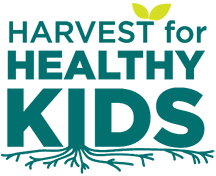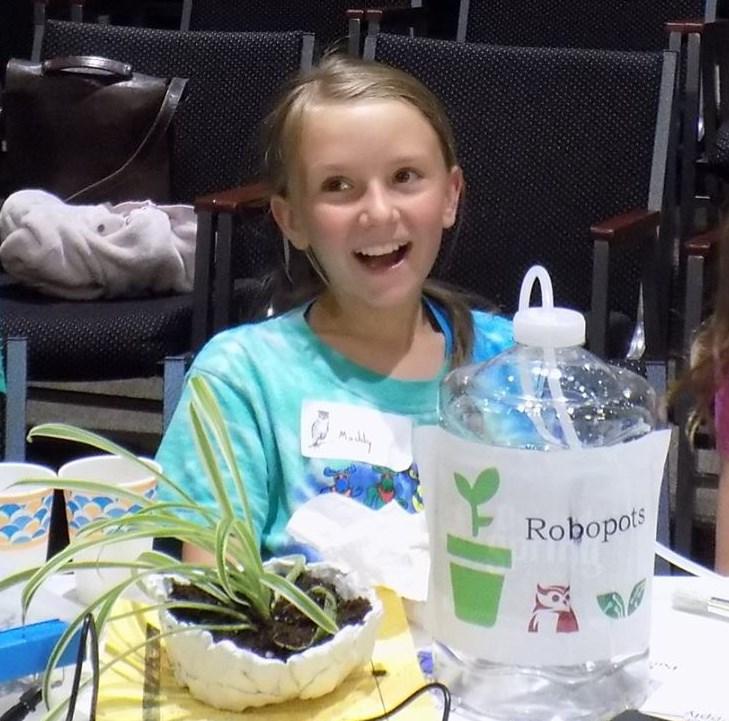| |
2017 Grant Reports DUE
June 1, 2018
2018 MAITC Grant Applications DUE
June 7, 2018
4pm
National Agriculture in the Classroom Conference
Portland, ME
June 26 - 29, 2018
SOLD OUT!
Let's Go! 5210 School Symposiums
Bangor, ME
October 25, 2018
Portland, ME
October 26, 2018
Maine Association of Health, Physical Education, Recreation, & Dance Conference
The Samoset Resort
Rockland, ME
November 4-6, 2018
___________________________
Teach ME about Food & Farms
*Contact us to plan a workshop date for your school for Fall 2018
|
|
|
Special Programs
|
ReTreeUS plants orchards in schools and provides educational programs that empower people to be healthy environmental stewards.
Fuel Up to Play 60 offers educators a wide array of resources they can use to help students make sustainable changes in their school environment.
Agroworld- agricultural science e-zine developed for the secondary educator.
Kids Gardening has ideas about plants and gardens, teacher resources, and grant opportunities.
The Chop Chop magazine and website has easy and healthy recipes.
Illinois Agriculture in the Classroom Ag Mags are 4-page, colorful agricultural magazines for kids.
|
| Agriculture License Plate |
 |
|
Funding from this plate has impacted over 200,000 students in 2017 with lessons, materials, volunteers and teacher training. Annually up to $60K is distributed in grants to schools, FFA, 4-H and other Non-profit programs for Ag education initiatives by the Maine Agriculture in the Classroom Council.
|
|
|
The National Agriculture in the Classroom Conference is coming to Portland, ME! June 26-29, 2018
SOLD OUT!
|
| Contact Us |
28 State House Station
Augusta, Maine 04333
207-287-5522
|
|
|
If you have a current MAITC grant,
your report is due TODAY - June 1st!
Our request for applications for our 2018 grants program is available on our
website
!
Applications are
due June 7th BY 4:00PM!
|
Contest RULES:
All ages welcome to participate, m
ust be on 11x14 poster paper, h
and drawn, m
ust contain original artwork and be in vivid colors, m
ust be an agricultural theme related to farm days, examples include: barns, fences, animals, ag related items.
One entry per person, n
o words or writing please.
Poster becomes property of Maine Farm Days
Must be submitted by July 3rd
Please include name, address, phone number and age on separate sheet.
Cash prize of $100 to the winner and prizes for all other participants
Posters are displayed during the event and voted on by patrons of Maine Farm Days.
Winner will be announced on
August 23rd.
Mail posters to:
Maine Farm Days,
71 McKenney Road,
Clinton, ME 04927
|
Ahhh the sweet smell of SUCCESS! Join the Maine School Garden Network for the first ever "Summer Garden Success Tour." Meet garden educators and see their programs first hand. Network with other garden goers, experience a showcase of MSGN's program offerings, and learn about ways to enhance the success of your summer garden program.
Participation for this September event will be limited so if you dig it and wish to stay informed as details emerge send an email to
[email protected] letting us know how to keep you informed over the summer. Wishing you a growing success, see you in September!
|
|
Gearing up for School Garden Grown!

Summer is approaching which means fair season will be here before we know it!
Have you ever thought about entering your school garden grown produce at the fair? It's a great opportunity to show off your hard work and win some prize money! Find the list of fair dates
here. Contact Maine School Garden Network Coordinator
Erika Verrier for more information.
|
|
NELE Kids Day
Our estimates show that over 3000 K-6th grade students were present to learn about agriculture in Maine on a face to face basis. Over 100 volunteers helped make this event a reality. Many of the exhibitors remarked on the politeness and respect shown them by the students.
Thank you! We hope everyone who attended had a great time.
Next year's event will be on
Thursday, May 16, 2019
. Please mark your calendars!
|
Check out these great "Readers" from Nutrients for Life
here.
Under Your Feet Reader: Grades 1&2.
This activity reader introduces soil and its role in producing food.
Soil Reader: Grades 5&6. This 18-page downloadable pdf  contains articles and activities, such as "Properties of Soil" and "Soil Testing Your Yard." The reader features an interview with an agriculture engineer and features puzzles, quizzes, and visuals to enhance a teacher's soil unit. contains articles and activities, such as "Properties of Soil" and "Soil Testing Your Yard." The reader features an interview with an agriculture engineer and features puzzles, quizzes, and visuals to enhance a teacher's soil unit.
 Soil Science Reader: Grades 7&8. The digital reader introduces soil formation and soil horizons with a fun edible soil activity. Other topics include the nitrogen cycle, plant nutrition, and fertilizer basics featuring the 4R Nutrient Stewardship. Soil Science Reader: Grades 7&8. The digital reader introduces soil formation and soil horizons with a fun edible soil activity. Other topics include the nitrogen cycle, plant nutrition, and fertilizer basics featuring the 4R Nutrient Stewardship. 
4R Reader: Through colorful comic strips and a class science experiment, students learn about the 4Rs of nutrient stewardship (right source, rate, time and place) through analogies with eating and eyeglasses.
|
Puzzlers from the Purple Plow
Puzzlers are hands-on STEM activities that can be completed in 1-2.5 hours. Puzzlers sharpen critical and creative thinking through agricultural-related activities. They follow the "create, test & improve, and share" steps in the Purple Plow engineering design process. They are aligned to Next Generation Science Standards for 5th-8th graders and are conducive for a variety of environments.
|

Harvest for Healthy Kids gives you everything you need to inspire children with fresh food grown close to home. Download the free activity kits developed by teachers and childcare providers, and join in helping a new generation thrive.
Each kit includes: activity plans, picture cards, teacher bites newsletter, family newsletter, and recipes. Check out this great resource HERE.
|
|
|
Maine State Library and Gizmo Garden Partnership
The groups are joining forces to address Maine's growing need for more
 computer professionals by sparking the interest of the state's youth.
The Maine State Library will contribute personnel, experience and a library network, while Gizmo Garden will contribute curriculum, supplies, and what's intended to be over $100,000 in funding. Learn more about the partnership here. One of the projects is called "RoboPots" where students craft a pot, add a houseplant, and rig a pump to water the plant every 24 hours. Learn more about the projects.
|
|
June is National Dairy Month! Check out these awesome lessons on dairy!
Lessons: 
- It's a Moo-stery. Grades K-2. Students will be introduced to the dairy industry and will make observations about how historic tools such as a butter paddle, cheese press, and milk tester can be used to process milk on a dairy farm.
- Milk or Meat? Beef or Dairy? Grades K-2. Students will identify the differences between beef and dairy cattle and determine the commodities produced by each type of cattle.
 - Sun, to Moo, to You! Grades 3-5. In this lesson, students will investigate the transfer of energy in the process of making milk. Students will understand that there are different forms of energy, that living things need energy to survive and that the primary source of energy is the sun. - Sun, to Moo, to You! Grades 3-5. In this lesson, students will investigate the transfer of energy in the process of making milk. Students will understand that there are different forms of energy, that living things need energy to survive and that the primary source of energy is the sun.
-
Milk Makin' Math. Grades 3-5.
In this lesson, students will learn about the numerous career opportunities involved in the dairy industry. They will also practice real world math problems related to specific careers within the industry. 
-
A Day Without Dairy. Grades 3-5.
In this lesson, students will create, read, and interpret graphs relating to the economic importance of the dairy industry and be challenged to understand the economic consequences of a day without dairy.
- Cowabunga! All About Dairy Breeds. Grades 3-5. In this lesson, students will understand breed characteristics and countries of origin for five different breeds of dairy cattle. Students will discover why dairy farmers choose individual breeds for specific purposes.
 - FoodMASTER: Milk and Cheese. Grades 3-5. Students will taste test four different milks while comparing color, texture, taste and cost. In addition, students will read the four milk food labels and complete a table comparing calories, fat and calcium found in the milks. The class will make cottage cheese by heating milk to the proper temperature and adding an acid (vinegar) to speed up the separation of curds and whey. - FoodMASTER: Milk and Cheese. Grades 3-5. Students will taste test four different milks while comparing color, texture, taste and cost. In addition, students will read the four milk food labels and complete a table comparing calories, fat and calcium found in the milks. The class will make cottage cheese by heating milk to the proper temperature and adding an acid (vinegar) to speed up the separation of curds and whey.
- Dairy. Grades 3-5. Students will be able to look at the origin of dairy cows and the differences between cow breeds. They also will be able to explain the difference between organic and traditional dairy farming. Students will be able to write directions and construct bar graphs while learning about nutrition and composting activities. 
-
Milk Matters. Grades 3-5.
Students will make ice cream or butter so they can observe the process of the liquid changing to a solid.
- FoodMASTER Middle: Cheese. Grades 6-8. Students will learn about the Law of Conservation of Mass by exploring environmental factors that can impact protein coagulation in milk (cheese-making process). By making qualitative and quantitative observations they will test three possible methods of making curds and whey.
 - FoodMASTER Middle: Yogurt. Grades 6-8. Students will learn the role of bacterial fermentation and evaluate the effect of fat content, sugar content (lactose), and temperature in bacterial fermentation as they make yogurt. - FoodMASTER Middle: Yogurt. Grades 6-8. Students will learn the role of bacterial fermentation and evaluate the effect of fat content, sugar content (lactose), and temperature in bacterial fermentation as they make yogurt.
- Blue's the Clue: Souring Milk for Science. Grades 6-12. This lab introduces students to the effect temperature has on reducing and controlling the growth of bacteria. Students will use conventionally pasteurized and ultra-high-temperature (UHT) milk to observe how different temperatures (hot, room temperature, cool, and freezing) affect the growth of spoilage bacteria. They will also learn about the importance of pasteurization in keeping food safe. 
- Milk: The Scoop on Chemical and Physical Changes. Grades 9-12. In this lesson students apply their knowledge of physical science to dairy products to determine if the changes that take place when turning milk into cheese, butter, yogurt, ice cream, whip cream and other dairy products, is a physical or chemical change.
- Lactose Lab: Some Don't Like it Sweet. Grades 9-12. In this lesson students will learn the chemistry and composition of milk, identify the difference between a monosaccharide and disaccharide, and carry out a laboratory activity testing the effect of the enzyme lactase on various milks.
Books: 
Dairy for ME
Clarabelle
Extra Cheese, Please!
Kiss the Cow!
Let's Make Butter
Make Mine Ice Cream
Milk Comes From a Cow?
The Milk Makers
Beef Cattle in the Story of Agriculture
Cattle Kids: A Year On the Western Trail
Levi's Lost Calf
Has a Cow Saved Your Life?
The Cow in Patrick O'Shanahan's Kitchen
Eating Fractions
Look Inside Food
Video:
More Companion Videos:
-
From Moo to You. This 26-minute program from the Gee Whiz in Agriculture series explores a dairy food processing plant that makes many of our favorite foods, such as cheese, butter, and ice cream.
-
Brittlelactica: Planet in Need.
The "Brittlelactica" integrated campaign tells the story of a race of calcium deficient aliens who discover the health benefits of milk and begin abducting cows, whom they dub "The Supreme Ones."
- "Cheese Science-As Gouda as TV Gets" Video Series. The Utah Education Network (UEN) website has a series of 25 three minute video clips about cheese and food science. The videos teach science, chemistry, and physics principles in addition to highlighting many careers in related fields.
|
|
| |
|